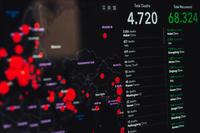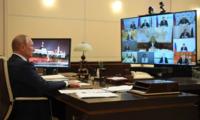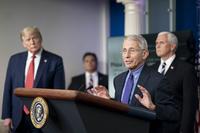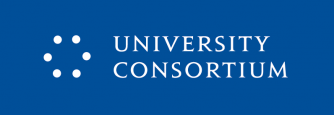Fear and Loathing in the Time of Corona
C.C. (UC Fellow who wishes to remain anonymous)
One of our UC Fellows has written a paper focused on American and Russian responses to the Coronavirus pandemic. (S)he is rather critical of both sides and we publish the paper as a "conversation starter". Do you agree or disagree with some of the points? Please write your answer, and we will publish it below. We are hoping to get a discussion going here!
Poor leadership, opportunistic jabs, smug propaganda campaigns, and attempts to ‘game’ the coronavirus have had a very real cost in time and lives in both Russia and the US. The legacy of this crisis is likely to be one of powerful and intrusive states much more willing and able to control society and the lives of individual citizens.
Speaking in late January, US Labour Secretary Wilbur Ross seemed blissfully unaware that the US unemployment rate was about to rise to levels not seen since the Great Depression. Indeed, he insisted that the virus could, in fact, be a boon for the US job market saying, “I don't want to talk about a victory lap over a very unfortunate, very malignant disease… (but) I think it will help to accelerate the return of jobs to North America” (BBC, 30th January 2020).
This attempt to ‘game’ the coronavirus or see it as a blessing in disguise, as long as it infected other people in other parts of the world, shows the limits of realist zero-sum thinking and the dangers of poor-quality leadership in a time of crisis. It also has had a very real impact on international cooperation; the G7 attempt to find common ground on the virus was derailed when the US government refused to accept any statement that did not describe the virus as the Wuhan Virus or the China Virus (Associated Press, 2020). Furthermore, the dangerous outcomes of zero-sum thinking can be seen in Trump’s decision to withdraw funding from the WHO because of their alleged pro-China behaviour. This decision risks lives, both around the world and in the US. While many may be tempted to blame the president alone for this petty behaviour at a time of crisis, a significant number of conservative and realist elites in the US had adopted a similar mindset, arguing that the virus could actually benefit the US, that measures to lockdown the country were disproportionate, or that there is a shadowy attempt to force America into lockdown in order to undermine the integrity of the nation (Chotiner, 2020; Walt. S, 2020).

The virus has brought the importance of individuals occupying the top positions in politics to the fore. In 2019 the US was ranked No. 1 in the Global Health Security Index due to its high number of experienced doctors, the powerful Centre for Disease Control, and enormous research capacity (GHIS 2019). However, poor decision making by US leadership, failing to fill global health positions, a refusal to start implementing social distancing programs, not stockpiling PPE, and not tracking the first cases when they were discovered in early February means that the US is now likely to have more cases and deaths than any other developed country (Diamond, 2020). On the other hand, countries like South Korea which saw a surge in cases much earlier than the US were able to create a comprehensive response to the virus.
While the US government has wasted precious time thinking that the US job market would benefit from the coronavirus, China and Russia have engaged in much publicised and opportunistic PR campaigns. China has already invested a large amount of money and energy in so called ‘mask diplomacy’ trying to make the world forget that it covered up the existence of coronavirus and has failed over the past two decades to properly impose hygiene and public health measures in so called ‘wet markets’, currently the suspected source of the outbreak (Patrikarakos, 2020).
The Russian PR campaign is more interesting, and again demonstrates a desire to score cheap geopolitical points while also underestimating the coming storm. Despite sharing a border and having close economic links with China, a low number of coronavirus cases were reported in Russia in February and early March, leading some to accuse the Russian government of a coverup (Eckel, 2020).
Instead of actively searching for cases and preparing for the expected surge, the Russian government decided to conduct a much-publicised aid operation to Italy, at the time the European country hardest hit by the virus. The mixed military and civilian ‘smart power’ effort was designed with a limited scope and was a decent attempt to offer aid. However, the mission ran into several PR problems which show the typical difficulties that Russian foreign policy has when interacting with Western nations.
When the Italian daily newspaper ‘La Stampa’ printed an article suggesting that up to 80% of the medical supplies Russia had given were unusable (a similar charge has been levelled against aid provided by China) and that the Russian mission could be a cover for espionage, Russian Defence Ministry spokesman Konsahenkov publicly accused the paper of ‘hiding behind free speech’ to spread anti-Russian propaganda and implied that there will be consequences for La Stampa (Balmer, 2020). This outburst, as well as what was considered by many in the Italian press to be an oversized and self-aggrandizing Russian PR campaign featuring EU flags being replaced by Russian flags and paid-for WhatsApp endorsements by Italian citizens (Moscow Times B, 2020), has limited the ability of the initiative to win over hearts and minds by appearing genuine. It has emphasised that even though this is a time of crisis, rivalries and suspicions remain, while the techniques developed over the past decade by the Russian disinformation machine undermines Russia’s ability to build genuine international goodwill.

One immediate consequence of the virus is that states all over the world will grow stronger, both in terms of the resources they command and the control they have over society. In particular, the crisis has given governments across the world the right to monitor and control citizen’s movements and access health records, bringing aspects of life that were previously thought of as being private into the public sphere. These are powers that are unlikely to be given up by states in the future and are likely to be adapted to continue to monitor the lives of their citizens as part of what futurist Harari refers to as ‘under the skin surveillance’ (Harari, 2020). For example, software developed to monitor and predict people’s movements and even their changing body temperature could be adapted by police to monitor criminals, social movements, or the feelings of crowds. In other countries strict punishments for ‘spreading misinformation’ about the coronavirus are likely to be expanded in order to cover up government mistakes. Finally, even though many national leaders have hailed doctors and nurses as heroes of the crisis, due to the politicisation of the medical field during the pandemic medical professionals are more likely to find themselves censored and controlled. Examples of doctors being intimidated and threatened for speaking out against the government have been well documented in Russia and China (including several doctors in Russia who have fallen out of windows) (Amnesty International, 2020; Kuo, 2020). The US has also turned the screws on whistle-blowers, firing doctors who complain about the conditions in US hospitals (O’Connell, 2020).
One likely outcome of this crisis will be a chilling effect on freedom of speech, especially within the medical world; this is dangerous as this epidemic could have been prevented or at least better prepared for if the Chinese authorities had not attempted to censor doctors in Wuhan.
National leaders have also had a boost in their personal power and popularity as a ‘rally ‘round the flag effect’ kicks in, with the majority of political leaders around the world seeing a boost in their personal opinion polls. Several leaders such as those in countries like Poland and Hungary who have long used crises to consolidate power and pursue an evolving nationalist agenda (Goode and Stroup, 2015) are looking to take advantage of a temporary boost in popularity among the masses to consolidate their power in the long term. However, Trump and Putin have struggled to take advantage of the situation as neither has seen a significant surge in support from below or been successful at consolidating their power from above during this crisis. In Russia, Putin has distanced himself from the crisis, rarely appearing on TV and using nationalist rhetoric which seems insincere and cliché, preferring to leave ministers and regional governors to implement measures. Trump has pursued the opposite strategy, remaining in the spotlight, giving questionable advice about ingesting household cleaning products and taking advantage of partisanship to command his loyal supporters to disobey state lockdown orders. However, despite pursuing different strategies and existing within different political systems, both leaders have not seen their popularity rise (538 2020, Levada Center 2020) and have failed to benefit from the anticipated rally ‘round the flag effect.
There has already been a considerable body of writing on whether autocracies or democracies are better at limiting the spread of the virus, with supporters of autocracies pointing to the success of countries like Vietnam and democrats pointing to countries such as Taiwan and New Zealand. However, the failure of both Trump and Putin to grapple with the crisis shows that at least when it comes to preparedness and avoiding a large outbreak, current leadership is more important than the political system.
In the longer term however, the political system of a country will matter more. Huntington argued in the 1980s that authoritarian regimes struggle with economic recessions due to their reliance on non-democratic forms of legitimacy and the prevalence of clientelist networks to ensure the loyalty of masses and elites (Huntington, 1991). The impending inevitable global recession is likely to open cracks within many authoritarian systems. The most likely way that authoritarian states will respond to this is with repression, especially as the crisis is likely to create new groups and civil society organizations outside the control of the state, such as charities or medical associations. This repression will likely be augmented by many of the technologies and methods developed or trialled during the pandemic. For example, opposition protests could be banned because of vague ‘public health’ concerns or curfews could be introduced in response to the threat of unrest. However, it remains unclear how effective this ‘stay home, watch TV’ form of repression will be, as it serves more to disempower and disengage citizens rather than to create a citizenry actively loyal to the regime.
Democracies have more choices about the road ahead, and those choices will largely come down to the preferences of current leaders, or those elected in the near future. Some democratic leaders like their authoritarian counterparts will be keen to return to the status quo as quickly as possible, but others will see an opportunity to renew social contracts, radically alter the working lives of citizens, and take advantage of the drop in consumption and travel to promote more environmentally sustainable lifestyles.

Other long-term consequences of the coronavirus are at this point hard to predict. For the US, a lack of a social safety net and poorly targeted aid packages are likely to see a surge in unemployment as large industries like tourism and catering rapidly collapse. The virus proves that the US healthcare system is not fit for purpose, but partisanship in Washington will likely delay any meaningful political changes long beyond the 2020 elections. The virus and Trump’s lackadaisical response to it is likely to become a point of contention in the upcoming election, the outcome of which remains undecided. Furthermore, a litany of disagreements between states and the federal government over lockdowns and other public health measures as well as the Supreme Court cases that will inevitably follow have the potential to radically alter the federal character of the country. These cases will decide if the federal or state governments has jurisdiction on topics as varied as public health and civil liberties. While a level of agonism is expected in state/federal relations, the current disagreement over ending lockdowns immediately is more serious than any federal dispute since the Civil Rights era. A lack of clear jurisdiction means there is a real risk that this disagreement between Trump and state governors could spill onto the streets leading to direct action and political violence becoming much more common across the US in the leadup to the election and beyond.
It is in Russia though where the coronavirus has the greatest ability to create long-term political change as the country finds itself in the middle of a perfect storm. One reason for this is the increasing deprivation of Russian citizens. Two thirds of Russians report having limited if any savings (Zukov, 2019) and the collapse of the informal economy during a prolonged quarantine is likely to push many more, especially pensioners, below the poverty line; already this year unemployment has started to rise and bankruptcies have increased dramatically (Moscow Times A, 2020) . While Russia does have enough money to create some form of rescue package for businesses and citizens, an arcane budget rule tying government spending to oil prices (which have also fallen dramatically) (Kuznets, 2020), corruption, and an inability to actually spend money (Bershidsky, 2019) mean that help is largely unlikely to reach those who need it. These bureaucratic difficulties mean that the success of a large rescue plan is contingent on the sustained involvement of Putin himself, which would expose the president to a level of personal responsibility that he has been keen to avoid throughout the crisis.
Another more unexpected consequence of the coronavirus is how a slow response from the Russian government and the relative invisibility of Putin has empowered and politicised regional governors and local leaders. Regional leaders in places such as Chechnya and Tatarstan both imposed quarantine measures before the central government, making use of QR codes and curfews. Some regional leaders have also adopted a different messaging strategy to that of the federal government, the most notable of which is that of Kadyrov in Chechnya, who in response to a video of a policeman beating a man who had broken curfew claimed “I would rather beat one man than bury a thousand” (Meduza, 2020). The central government has struggled to coordinate this ad-hoc but proactive regional responses to the virus and has attempted to reign in regional actors; in response to Chechnya and Chelyabinsk closing their internal borders to the rest of Russia, Prime Minister Mishustin held a conference call with local governors stressing that only the federal government had that authority (iNTERFAX, 2020). Despite Russia's size, the Putin regime has proven effective at ensuring loyalty and compliance among local and regional actors in the past. However, as the current crisis has demonstrated, ambitious regional leaders are ready to step into the power vacuum left by the federal government and will likely prove unwilling to give up the personal capital they have accumulated once this crisis ends.

Putin’s personal ambitions have also been disrupted by the virus. In January 2020 the Russian government introduced several constitutional amendments designed to entrench Putin’s power for at least another decade by allowing him to run again for president in 2024. In order to legitimise this the government planned to hold a public referendum, expecting that Putin’s popularity and a lack of opposition would allow him to easily win. However, this referendum has been postponed due to the virus and, with Putin’s faltering public opinion rating there is no guarantee it will be rescheduled, putting these plans on hold until another solution is found. More importantly, the crisis and the coming economic recession may finally begin to split the existing consensus of the Russian political and economic elite as different industries are damaged to different extents and the level of government intervention in the economy becomes politicised.
In conclusion, the coronavirus is likely the event that has had the largest impact on the largest number of people in the world so far in the 21st century. While each country has responded to the crisis in its own way, diverging infection and death rates across the world have contrasted countries which have leaders who made significant, effective interventions early with those that did not. It is clear, however, that in both the US and Russia a belief that the virus could be used or ‘gamed’ delayed a strong response and cost lives. The long-term effects of the virus will largely depend on whether the ‘legacy’ of the virus simply acts to accentuate, reveal, or speed up trends already present, or if it will act as a turning point, putting new people in positions of power and creating new social and political forces and pressures. For writers such as Anne Applebaum it is the former (Applebaum, 2020), whereas for this author it is the latter. This virus is likely to change the outcome of elections, bankrupt corporations, drastically alter the nature of globalization, and create pressures for reform in global governance. The countries and leaders that worked to quickly limit the spread of the coronavirus will likely reap long-term rewards, whereas others that did not will find that the virus has the power to be an existential political threat.
Global health is a public good in a globalised world. The worst legacy this virus could leave would be like that left in the 1920s, where after the dust settles leaders choose to forget about the possibility of a modern plague using avenues of globalization as vectors of transmission, continue to engage in zero sum thinking about global health and, most importantly, continue to censor or ignore the advice and warnings of doctors and medical professionals.
Bibliography
538 (2020) How Popular Is Donald Trump? | FiveThirtyEight, 538. Available at: https://projects.fivethirtyeight.com/trump-approval-ratings/ (Accessed: 15 April 2020).
Amnesty International (2020) Russia: Authorities detain doctor who exposed flaws in COVID-19 response | Amnesty International, Amnesty International. Available at: https://www.amnesty.org/en/latest/news/2020/04/russia-authorities-detain... (Accessed: 15 April 2020).
Applebaum (2020) Coronavirus Showed That America Wasn’t Up to the Task - The Atlantic, The Atlantic. Available at: https://www.theatlantic.com/ideas/archive/2020/03/coronavirus-showed-ame... (Accessed: 16 April 2020).
Associated Press (2020) Coronavirus: no agreement on Pompeo’s ‘Wuhan virus’ terminology as G7 foreign ministers spar over infection source | South China Morning Post, Associated Press. Available at: https://www.scmp.com/news/world/united-states-canada/article/3077019/cor... (Accessed: 15 April 2020).
Balmer (2020) ‘From Russia with love’ mission to Italy hit by press row - Reuters, Reuters. Available at: https://www.reuters.com/article/us-health-coronavirus-italy-russia/from-... (Accessed: 15 April 2020).
Bershidsky (2019) Why Russia Is Struggling to Build Putin’s Grand Dream - The Moscow Times, Moscow Times. Available at: https://www.themoscowtimes.com/2019/11/15/why-russia-is-struggling-to-bu... (Accessed: 16 April 2020).
Chotiner, I. (2020) The Contrarian Coronavirus Theory That Informed the Trump Administration | The New Yorker, New Yorker. Available at: https://www.newyorker.com/news/q-and-a/the-contrarian-coronavirus-theory... (Accessed: 15 April 2020).
Diamond (2020) Inside America’s 2-Decade Failure to Prepare for Coronavirus - POLITICO, Politico. Available at: https://www.politico.com/news/magazine/2020/04/11/america-two-decade-fai... (Accessed: 16 April 2020).
Eckel (2020) What Exactly Is Going On With Russia’s Low Coronavirus Numbers?, RadioFreeEurope. Available at: https://www.rferl.org/a/what-exactly-is-going-on-with-russia-s-low-coron... (Accessed: 16 April 2020).
Goode, J. P. and Stroup, D. R. (2015) ‘Everyday Nationalism: Constructivism for the Masses*’, Social Science Quarterly, 96(3), pp. 717–739. doi: 10.1111/ssqu.12188.
Harari, Y. (2020) the world after coronavirus , Financial Times. Available at: https://www.ft.com/content/19d90308-6858-11ea-a3c9-1fe6fedcca75 (Accessed: 15 April 2020).
Huntington, S. P. (1991) ‘Democracy’s Third Wave’, Journal of Democracy. doi: 10.1353/jod.1991.0016.
iNTERFAX (2020) Russia’s prime minister tells regional leaders that only the federal government can close internal boundaries — Meduza, iNTERFAX. Available at: https://meduza.io/en/news/2020/04/06/russia-s-prime-minister-tells-regio... (Accessed: 15 April 2020).
Kuo (2020) Coronavirus: Wuhan doctor speaks out against authorities | World news | The Guardian, The Guardian. Available at: https://www.theguardian.com/world/2020/mar/11/coronavirus-wuhan-doctor-a... (Accessed: 15 April 2020).
Kuznets (2020) Black Monday The ruble is nosediving thanks to a coronavirus-triggered oil price collapse. Is Russia spiraling into another economic crisis? — Meduza, Meduza. Available at: https://meduza.io/en/feature/2020/03/10/the-ruble-is-nosediving-thanks-t... (Accessed: 16 April 2020).
Levada Center (2020) Putin’s Popularity report
Meduza (2020) Chechnya’s leader praises the cops who beat up a man for violating coronavirus self-isolation — Meduza, Meduza. Available at: https://meduza.io/en/news/2020/04/06/chechnya-s-leader-praises-the-cops-... (Accessed: 15 April 2020).
Moscow Times A (2020) Italians Offered Cash to Film ‘Thank You Russia’ Videos for Coronavirus Aid – Reports - The Moscow Times, Moscow Times. Available at: https://www.themoscowtimes.com/2020/04/14/italians-offered-cash-to-film-... (Accessed: 15 April 2020).
Moscow Times B (2020) Russian Bankruptcy Cases Jump 70% - The Moscow Times, Moscow Times. Available at: https://www.themoscowtimes.com/2020/04/07/russian-bankruptcy-cases-jump-... (Accessed: 9 May 2020).
O’Connell (2020) Coronavirus: US doctors warned they will be fired if they complain to media about lack of resources | The Independent, Indipendent. Available at: https://www.independent.co.uk/news/world/americas/coronavirus-doctors-me... (Accessed: 15 April 2020).
Patrikarakos (2020) Beware China’s masked diplomacy | The Spectator, The Spectator. Available at: https://www.spectator.co.uk/article/beware-china-s-masked-diplomacy (Accessed: 16 April 2020).
Ryan, B. (2016) ‘Carl Schmitt: Zones of Exception and Appropriation’. Routledge, pp. 201–232. doi: 10.4324/9781315234786-19.
Walt. S (2020) How the United States Can Still Win the Battle for Global Leadership After the Coronavirus Pandemic, Foreign Policy. Available at: https://foreignpolicy.com/2020/04/03/united-states-can-still-win-coronav... (Accessed: 15 April 2020).
Wilczek (2020) Polish government pushes through bill allowing May elections to be held entirely by post, Notes From Poland. Available at: https://notesfrompoland.com/2020/04/07/polish-government-pushes-through-... (Accessed: 16 April 2020).
Zukov (2019) A Majority of Russian Families Have No Savings, Poll Says - The Moscow Times, Moscow Times. Available at: https://www.themoscowtimes.com/2019/05/16/a-majority-of-russian-families... (Accessed: 15 April 2020).



